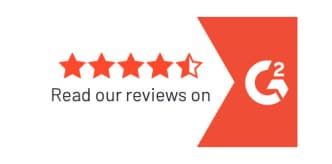As the owner of a small-to-medium-sized business, you may be contemplating whether to use the services of a financial advisor when you get your 401(k) plan up and running. Small and Medium Business Owners (SMBs) have less wiggle room when making financial decisions, because their revenues are less and their profit margins are likelier narrower than they are for a larger business. So you’re smart to weigh the benefits carefully before making an expenditure that will affect your bottom line.
Today, we want to help you with the decision about whether to include a financial advisor in your small-business 401(k) plan by going over some of the pros and cons.
Pros
1. It can provide a valuable source for trusted guidance
One of the main reasons SMBs — or any company or individual — turns to a financial advisor for help is because they are not qualified to make whatever decisions lay ahead of them on their own, and they prefer to turn the job over to someone with the knowhow and confidence to do it. Your financial advisor can help you make initial plan design decisions, to best benefit both owners and employees, and they can further advise your employees about their individual investment options. Having an expert onboard who understands the financial world can give you needed reassurance about your choices.
Your employees, in turn, will feel much more secure investing in the 401(k) plan you sponsor, and thus will be more likely to participate fully in it. And the more participants you have, the more you and your highly compensated employees can contribute to your own accounts.
Additionally, your employees will appreciate your dedication to their secure retirement and repay you with the loyalty and allegiance you want in a workforce.
2. It can save money
Later in this article, we mention how hiring a financial advisor costs money, but doing so also helps you save money in a variety of ways.
Besides offering astute investment advice to you and your employees and saving you from having to pay fines or penalties due to noncompliance with federal regulations, financial advisors can also regularly monitor and review the performance of the 401(k) plan’s investment options. They can analyze investment returns, evaluate fund fees, and make adjustments as needed to optimize the plan’s performance. This proactive approach helps ensure that the plan remains competitive and aligned with participants’ retirement goals.
3. It can save time
Managing a 401(k) plan can involve administrative tasks, such as processing contributions, tracking eligibility and addressing participant inquiries (although 401GO makes it easy for SMBs by automating most of these tasks through your HR service provider.)
Financial advisors can collaborate with plan administrators or third-party administrators to streamline these processes, allowing SMB owners to focus on core business operations.
4. It alleviates compliance worries
Although 401GO makes it easy to get your 401(k) program up and running in as little as 15 minutes, oftentimes down the road an SMB must undertake tasks to ensure the company is in compliance with federal regulations governing 401(k)s. This can include scheduling audits, completing paperwork and filing forms.
If this isn’t a responsibility you feel qualified — or interested — in taking on, your best bet is to work with an experienced financial advisor. Financial advisors can help navigate these complexities because they stay updated on legislative changes, ensuring the plan remains in compliance. They can assist with required reporting, documentation and adherence to fiduciary responsibilities.
5. It can be a prized perk
You can have your financial advisor go above and beyond, conducting employee education sessions, providing retirement planning resources and addressing individual questions or concerns. This personalized support helps employees understand their retirement options and make sound financial decisions, and they will no doubt appreciate your efforts.
6. It improves outcomes
Importantly, plans tend to have better outcomes, both for employers and for individual participants, when a financial advisor is connected. We estimate that advisor-led plans perform an average of 15% better, which can make a substantial difference for employees’ retirement plans.
Cons
1. It costs money
As a business owner, you probably know it takes money to make money, so the fact that something costs money doesn’t necessarily make it a liability, but nonetheless, the amount — and whether you can afford to spend it — needs to be considered.
2. It takes time and effort
Another tenet of owning a business is that time is money, and the more time you spend finding the right financial advisor for you, the less time you have to spend growing your business. You may be able to neutralize this con by delegating the job of choosing a financial advisor to one of your employees, or another trusted individual.
401GO offers a partner pairing service, where we can connect you with one of our trusted financial advisor partners in your local area. Just ask!
3. It’s a risk
The risk you take in entrusting your company’s 401(k) decisions to a third party that you probably don’t know very well is real. The decisions they make might not work out for you and your employees as well as you’d hoped.
However, you can mitigate this risk somewhat by doing your homework before selecting your financial advisor. And remember that no investment decisions are foolproof, and even if some of your investments don’t do well right away, there’s no evidence that you would have come out any better if you’d made the decisions on your own, or if you’d used a different financial advisor.
Some of your fears can be assuaged by understanding that fiduciary advisors are bound to act in the best interests of plan participants, providing guidance on selecting and monitoring investment options, managing plan fees, and addressing any conflicts of interest.
Is a Financial Advisor Worth the Investment?
The bottom line is that, like when you purchase any other service, you have to decide how much you think you need it and how much it is worth to you. A financial advisor can provide risk management and long-term savings strategies, potentially improving retirement outcomes for you and your employees. But if providing company matches to your employees’ accounts is already a bit of a stretch, this might not be the right time to hire a financial advisor.
There’s nothing to stop you from making a change down the road and adding the service into your plan sponsorship. And in the meantime, you may want to take advantage of 401GO’s automated tools that offer some financial services.



